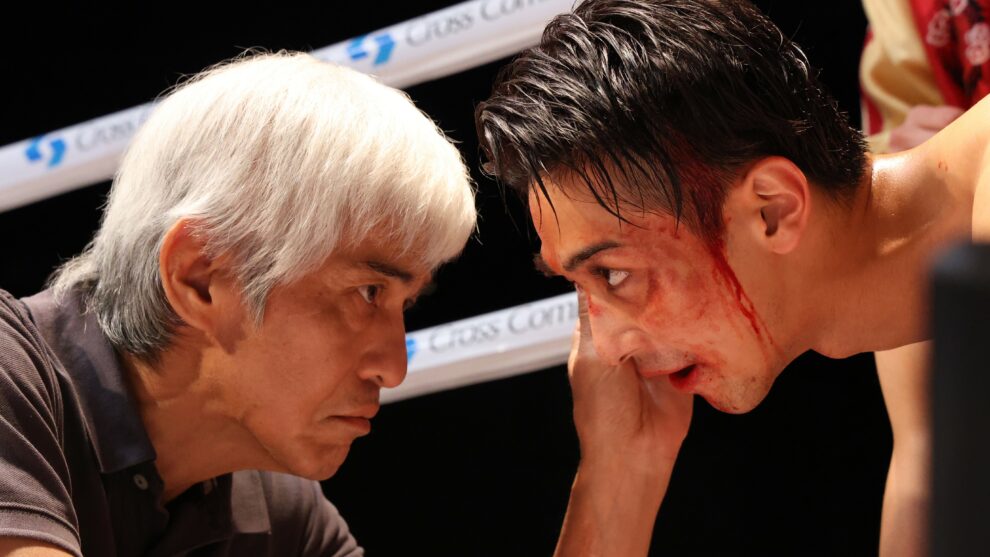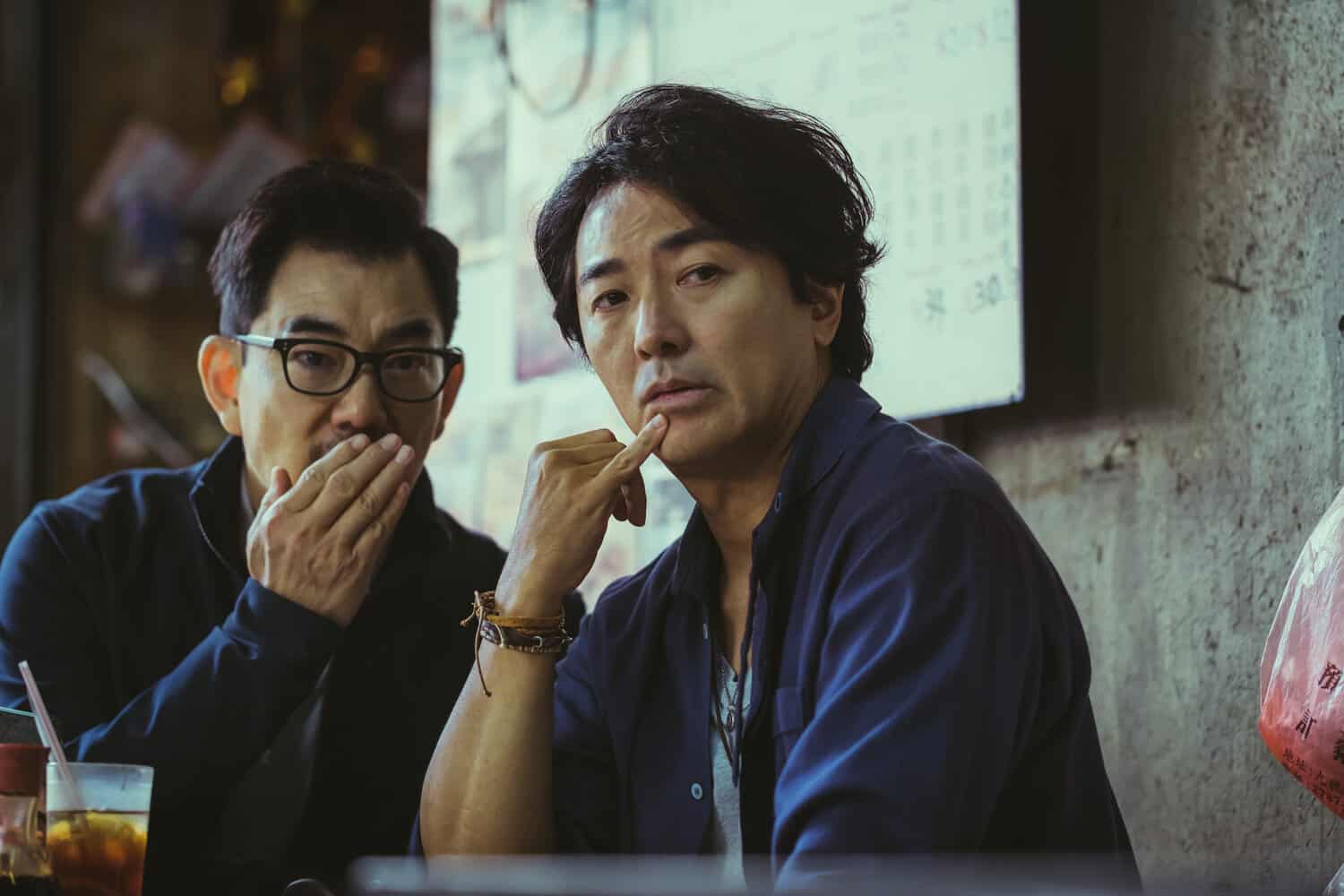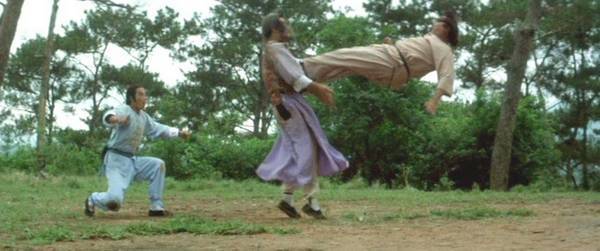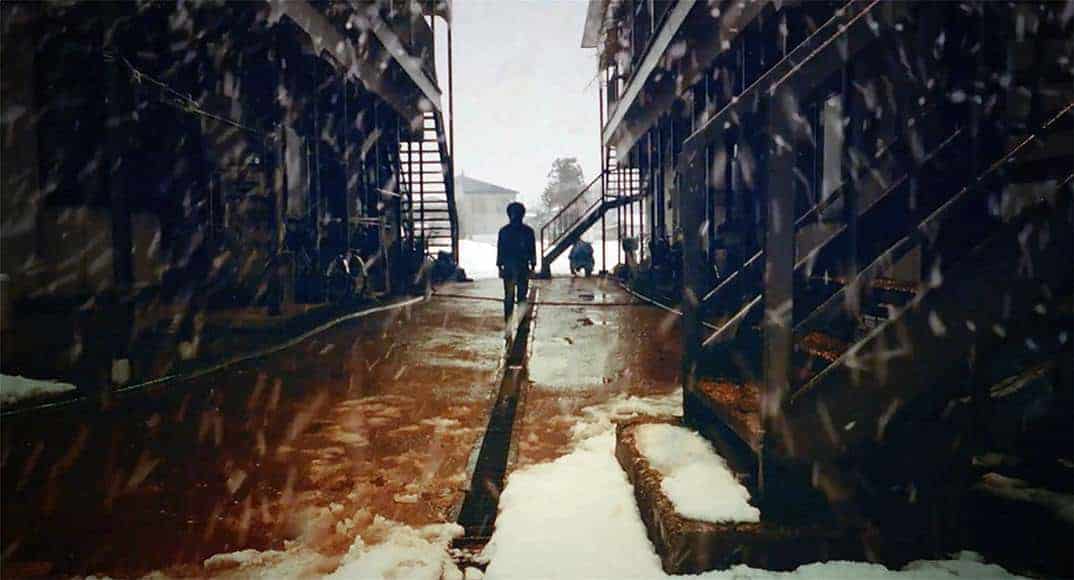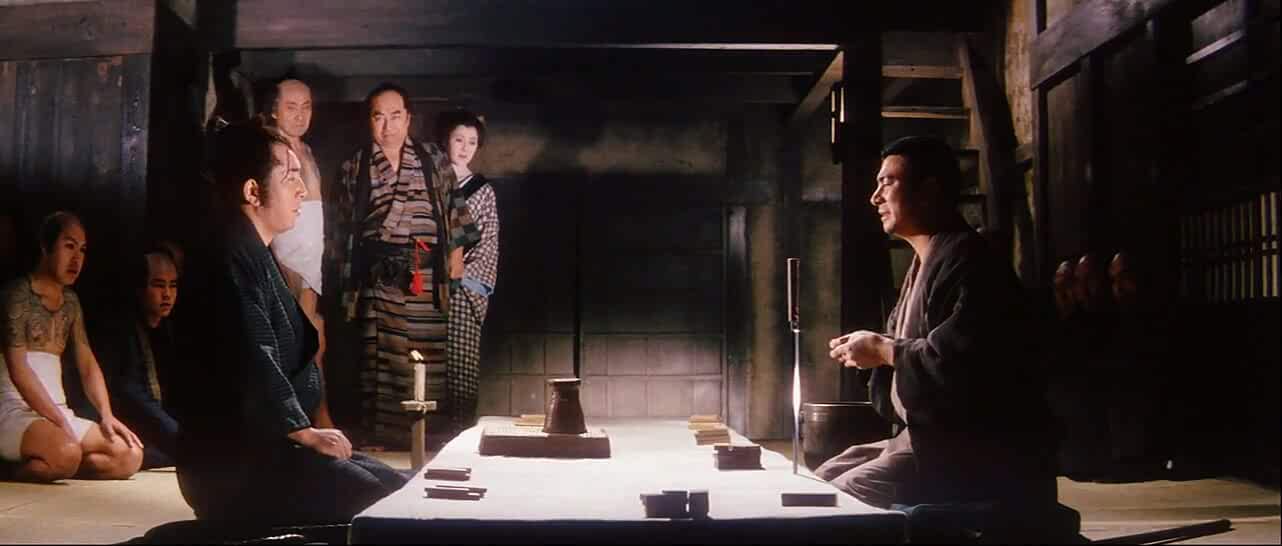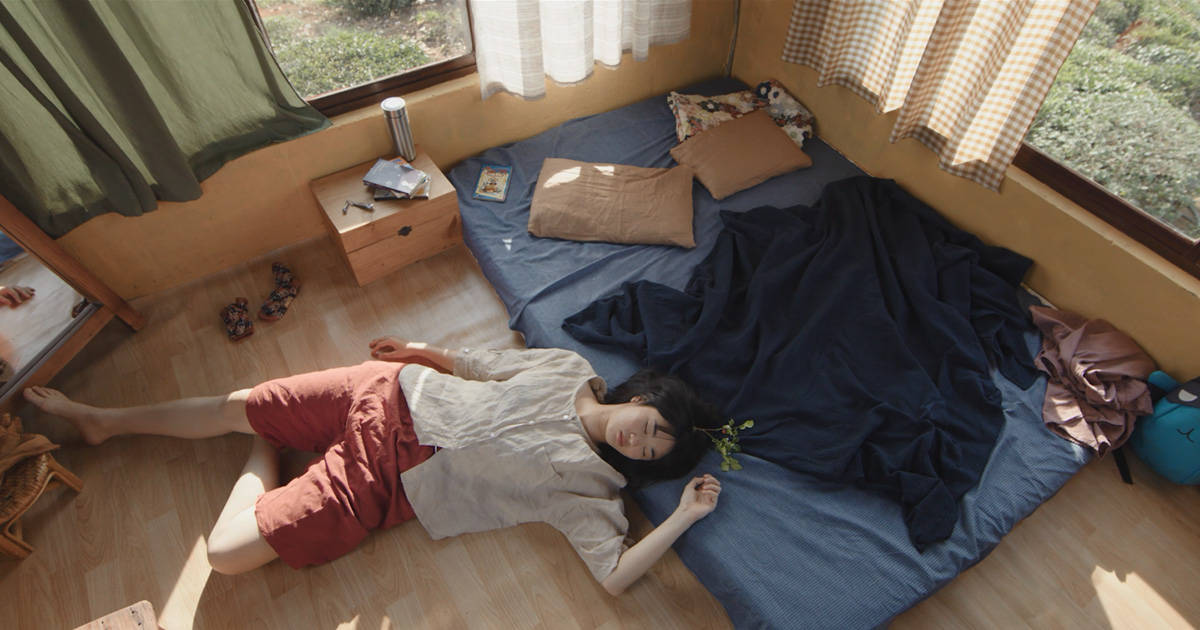I am not sure why, but it seems films about boxing have been coming in abundance from Japan during the last few years, with titles like “100 Yen Love” and “Blue” being the first that come to mind. It seems that the recipe of either “Million Dollar Baby” or “Rocky”, or both on occasion, still has an impact on the audience, and that is exactly the path “Last Bloom” follows.
Last Bloom is screening at Toronto Japanese Film Festival

The story is based on the novel “Haru ni Chiru” by Kotaro Sawaki and revolves mostly around two men. Jin is an elderly former boxer who has just returned to Japan after a forty year subpar boxing career in the US, following an unfair decision in the beginning of his career in Japan. Shogo is a struggling young boxer from a poor family, who has also experienced something similar. One night in a bar, Shogo decides to challenge Jin, and finds himself knocked down almost immediately. He then asks Jin to train him, but he, as usually in such films, initially turns him down, until, inevitably, he does not.
In the meantime, Jin has left some loose ends with his family and former colleagues, and soon has the owner of the gym he used to train in, Kenzo, staying with him, with the same applying to his niece, Kanako. Shogo's mentality reminds Jin of himself his age, and when a shot at the title presents itself, the two embark on it full throttle. In their path, however, apart from two fighters much more experienced than Shogo, first Shun Otsuka, and then the current champion, Toshio Nakanishi, they also have to face a number of other obstacles, which eventually become life-threatening.
If you like Last Bloom, check also this article
Evidently, and as it becomes apparent from the synopsis, Zeze opts for a rather cliched path in his story. Underdog loses, meets a trainer who does not want to help, convinces him to train them, gets better, a sudden opportunity arises, and here we go for a championship match. Again, if you have ever seen the two films we mentioned in the beginning, and probably most of Hollywood sports films, you will know this story.
At the same time though, what both the aforementioned titles have in their finale (Rocky in the first installment) is an uncertainty about whether the protagonist will win at the end. This lack of certainty works excellently for a movie that could easily have the protagonist lose and then follow a more dramatic path, in a style we have seen in Toshiaki Toyoda's “Unchain” for example. I feel that this element, and the appeal of the underdog that fights against all odds of course, makes the particular recipe quite successful, even today, and even to the viewer that has witnessed it time and time again.
The same applies to the concept of ‘losers' coming up together and scoring wins in all fronts, which adds another level of appeal here. Furthermore, Zeze's decision not to move forward with the potential romances that appear in the story, Jin with gym manager Reiko and Kuroki with Jin's niece Kanako, is definitely a tick in the plus column, particularly as it moves away from the cliches.
Yet another trait here is the presentation of the training and the boxing matches, which are quite realistic, with all the blunders, the sweat, the blood, the knockouts, the broken teeth and bloodied eyes presented with no punches pulled (pun intended), in one of the best aspects of the movie. The fact that none is presented in a music video style also adds to the realism Zeze implements throughout, on par with the more recent representations of the sport on cinema, which is stripped from all the Hollywood exotification. In that regard, the action choreographies, the acting, Kohei Kato's cinematography and Ryo Hayano's editing all come together in excellent fashion, in order to present a series of truly memorable sequences.
On the other hand, when the narrative moves away from boxing, the film definitely falters, with all the cliches of the Japanese family drama appearing here, including a prolonged and rather melodramatic (cheesy one could say) ending.
This issue also impacts the acting, although most of the cast do a relatively good job. Koichi Sato as Jin frequently captivates with his charisma, with the scenes he smiles or laughs definitely staying on mind. Ryusei Yokohama plays the delinquent underdog in convincing fashion, just as Masataka Kubota does as the cocky adversary Nakanishi.
Although some issues can be found throughout “Last Bloom” the sum of pros and cons definitely leans towards the latter, with the regular recipe offering a rewarding, in terms of entertainment, experience, yet once more.


